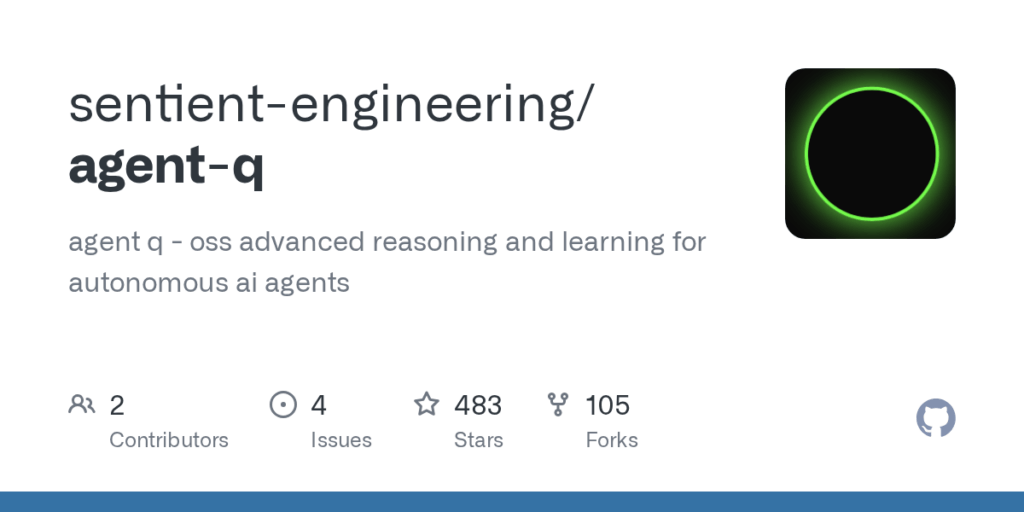agent q
Basic Information
This repository provides an open source implementation of research on advanced reasoning and learning for autonomous AI agents, focused on completing tasks on the web reliably. It bundles multiple agentic architectures inspired by the Agent Q paper and related work so developers and researchers can build, run and evaluate web-capable agents. The project includes setup guidance such as dependency installation with poetry, launching a Chrome instance with remote debugging for web interaction, and configuring environment keys for OpenAI and Langfuse. The repo is intended as a development and experimentation platform rather than a polished end-user product. It exposes commands to start the agent, run evaluation suites, and generate reinforcement learning / DPO training pairs, enabling reproduction of experiments described in the associated research.








